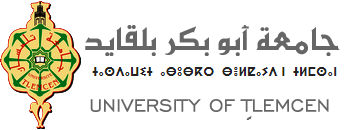البعد الديني والأنثروبولوجي الإصلاحي للأشراف ( الدرقاوية – التيجانية ) وثوراتهم ضد العثمانيين
Résumé: ملخص: حرص الحكام العثمانيون منذ دخولهم إلى الجزائر سنة 1518م على المحافظة على استقرار الجزائر وضبط النظام، ومنذ بداية النصف الثاني من القرن الثامن عشر بدأت تتغير سياسات العثمانيين تجاه سكان الجزائر، فقد غلب عليها طابع القوة والعنف، والقضاء على كل محاولات تهدد مصالحهم، حيث ظهرت أصوات معارضة لنظام الحكم العثماني بإيالة الجزائر على غرار الطريقتين الدينيتين الدرقاوية والتيجانية اللتين قامتا في بداية الأمر بأدوار أنثروبولوجية إصلاحية ودينية، ثم تطور هذا التصعيد إلى إعلان عدة ثورات في مختلف مناطق الجزائر، ممثلة في ثورة ابن الشريف الدرقاوي بغرب الجزائر وثورة ابن الأحرش بالشرق الجزائري وثورة أحمد التيجاني وابنيه بالجنوب الجزائري، ومن بين الأسباب التي أدت إلى اندلاع هذه الثورات التي اتخذت طابع ديني نذكر فساد النظام السياسي العثماني بإيالة الجزائر وعزلته، الاعتماد على القوة العسكرية في حل المشاكل الاجتماعية، السياسة الضريبية على الفلاحين، قمع أصوات العلماء ورجال الدين وتجريدهم من صلاحية الشرعية الدينية، إضافة إلى دعم سلاطين المغرب لرجال الدين والطرقيين بالمال والسلاح. Abstract: Since their arrival in Algeria in 1518, the Ottoman rulers were keen to maintain stability and order in the country. However, from the beginning of the second half of the 18th century, Ottoman policies toward the Algerian population began to change, becoming increasingly forceful and violent to suppress any threats to their interests. Opposition voices emerged against Ottoman rule in the Regency of Algiers, particularly from the Darqawiyya and Tijaniyya religious orders, which initially played reformist and religious anthropological roles. Over time, this opposition escalated into several revolts across different regions of Algeria, including the revolt of Ibn al-Sharif al-Darqawi in western Algeria, the revolt of Ibn al-Ahrash in the east, and the revolt of Ahmad al-Tijani and his sons in the south. Among the key reasons behind these uprisings, which took on a religious character, were the corruption and isolation of the Ottoman political system in Algeria, reliance on military force to address social issues, the heavy taxation of farmers, the suppression of scholars and religious figures by stripping them of their religious legitimacy, and the support provided by Moroccan sultans to religious leaders and Sufi orders with money and weapons.
Mots-clès:
Publié dans la revue: مجلة أنثروبولوجية الأديان
Nos services universitaires et académiques
Thèses-Algérie vous propose ses divers services d’édition: mise en page, révision, correction, traduction, analyse du plagiat, ainsi que la réalisation des supports graphiques et de présentation (Slideshows).
Obtenez dès à présent et en toute facilité votre devis gratuit et une estimation de la durée de réalisation et bénéficiez d'une qualité de travail irréprochable et d'un temps de livraison imbattable!


